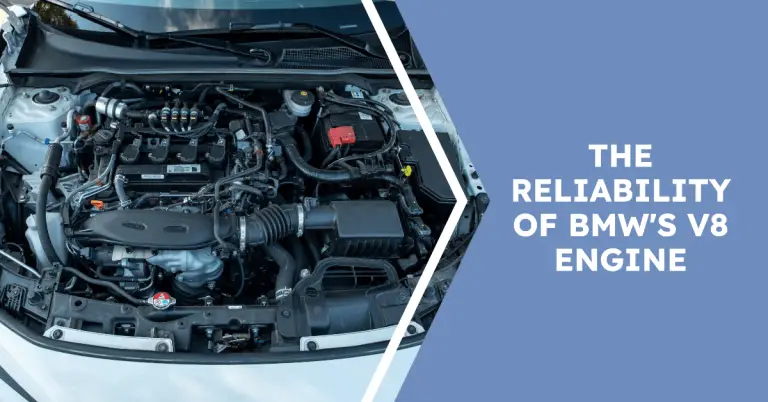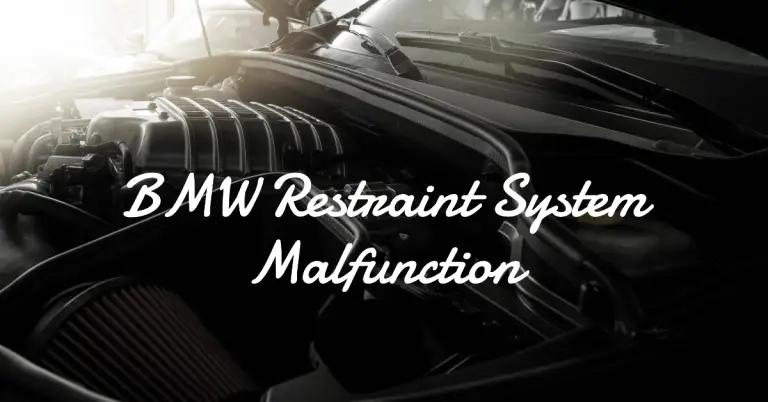BMW M50 Problems: Common Issues and Solutions
Are you wondering what are the most common BMW M50 engine problems, failures, and issues these motors face? If so, you’ve come to the right place.
The BMW M50 is an inline 6-cylinder engine that was produced from 1990-1996 across various BMW models. When maintained properly, these motors are generally reliable and can provide years of dependable service. However, like any engine, the M50 is susceptible to certain weak points and durability issues over time.
In this 2500+ word guide, we’ll cover everything you need to know about the notorious M50 engine including:
- The history and timespan of M50 engine production
- The most common M50 problems and failure points
- M50 engine longevity, lifespan, and overall reliability compared to other BMW motors
- Proper maintenance and care for your M50
- M50 engine specs and technical details
- And much more…
Let’s get started!
A Brief History of BMW M50 Engines
First introduced in 1990, the BMW M50 marked the debut of a new generation of 6-cylinder engines at BMW.
Replacing the older M20 motor, the M50 implemented advanced features for the time such as dual overhead cams, 4 valves per cylinder, and variable valve timing (VANOS). This helped the M50 achieve higher performance and efficiency compared to previous BMW 6-cylinder motors.
Several variants of the M50 were produced from 1990-1996 in both 3.0L and 2.5L displacements:
- M50B25: 2.5L version produced from 1992-1996
- M50B25TU: Upgraded 2.5L version with technical updates made from 1993-1996
- M50B30: The original 3.0L version produced from 1990-1993
- M50B30TU: 3.0L technical update version made from 1993-1995
Some of the most popular BMW models that came equipped with various M50 engine configurations include:
- E34 5-series
- E36 3-series
- E31 8-series
- E39 5-series
- Z3 roadster
Now that we’ve covered the history and timeline of the M50 let’s move on to exploring some of its most common problems and failure points.
The Most Common BMW M50 Engine Problems
While robustly designed, like any motor, the BMW M50 is prone to some common issues, especially as the mileage increases beyond 100-150k miles. Some of the most notorious M50 engine problems include:
Timing Chain Guide and Tensioner Failures
One of the well-known weaknesses of the M50 is the timing chain system. The older timing chain guides constructed of plastic are prone to breaking down and disintegrating after higher mileage. Similarly, the chain tensioner may malfunction or fail over time.
Symptoms of a worn timing chain guide include rattling noise from the front of the engine. If the guide fully breaks and debris falls into the timing chain, it can cause complete timing chain failure and catastrophic engine damage from the pistons and valves colliding.
Replacing the timing chain, guides, and tensioner with improved parts is recommended to avoid this issue.
Thermostat Housing Leaks
The plastic thermostat housing used in the M50 tends to become brittle and develop cracks over time and heating cycles. This leads to coolant leaks that may first show up as stains around the front lower area of the engine.
Continuing to drive with a bad thermostat housing leak can lead to overheating. Replacing the housing and gasket is the proper repair.
Coolant System Failures
Like most engines, as the M50 ages, the rest of the cooling system becomes prone to failures. Some common issues include:
- Radiator leaks or corrosion
- Water pump impeller failures
- Leaking or burst coolant hoses
- Failing viscous fan clutches
Faulty cooling system components can quickly lead to catastrophic overheating and head gasket failures. Be diligent about fixing any leaks or issues with the cooling system immediately.
Oil Leaks
Oil leaks become increasingly common on higher mileage M50 engines. The valve cover gasket, oil filter housing gasket, and main seals tend to leak over time.
Small leaks may only require new gaskets. But left unchecked, the larger leaks can lead to oil burning, low oil pressure, hydrolock, and even engine failure.
Variable Valve Timing Issues
The M50TU versions feature variable valve timing (VANOS). The VANOS solenoids and timing components tend to wear out and fail around 125-150k miles. This causes a Check Engine light for improper camshaft timing.
Replacing the VANOS solenoids and inspecting the timing chain should resolve this issue. However, if the timing chain has jumped, bent valves can occur requiring cylinder head removal and repair.
M50 Engine Reliability and Lifespan
When properly maintained and cared for, the BMW M50 is generally regarded as a robust and reliable engine. Here’s a quick rundown of the M50’s overall lifespan and durability:
- Properly maintained M50 engines can reliably last up to 150-200k miles – With regular maintenance including frequent oil changes, cooling system flushes, gasket replacements, etc. an M50 has the potential to outlast this mileage range before major issues occur. Of course, exceptions with lower mileage failures can happen due to factors like overheating incidents.
- The early M50B30 engines seem to be the most durable and long-lasting – The original 3.0L M50 engines produced from 1990-1993 did not yet have variable valve timing, which seems to be a common failure point on the later versions. There are many documented cases of the M50B30 variants easily surpassing 150-200k miles when meticulously cared for.
- Common failure causes include lack of maintenance, overheating, oil leaks – Neglecting cooling system flushes, oil changes, and gasket/seal replacements tends to shorten the lifespan of an M50 dramatically. Similarly, overheating or running the engine low on oil can quickly spiral into major issues.
- M50B25TU engines often have more problems – The upgraded 2.5L M50 variant with VANOS produced from 1993-1996 tends to have more issues with the variable valve timing components as mileage increases. While failures depend more on condition than engine variants, the M50B25TU generally seems to have the shortest lifespan of the bunch.
So in summary, when religiously maintained and driven carefully, reaching over 150,000 miles on an M50 is certainly achievable. But neglect basic maintenance or allow even occasional overheating, and that longevity will be cut short.
How Long Do M50 Engines Last?
To expand more on longevity – how long can you expect an M50 engine to realistically last if properly cared for?
Here are some general guidelines:
- With diligent maintenance and gentle driving, an M50 engine should last 15 years or 150,000-200,000 miles without major issues or rebuilds required. There are certainly documented cases of exceeding this lifespan but 15 years/150k miles is a reasonable expectation if you stay on top of maintenance and repairs.
- Lack of cooling system maintenance, oil changes, and gasket replacements will shorten the M50’s lifespan dramatically. Neglecting basic maintenance often limits engines to under 100k miles before problems occur.
- The later model M50B25TU 2.5L VANOS engines will typically display more wear and longevity issues around 125-150k miles as the variable valve timing components reach the end of their lifespan.
- Examples of properly maintained M50 engines lasting over 250,000 miles do exist, but requires religious oil changes, gasket replacements, cooling system flushes, and very gentle driving. 200k miles is more common but still requires diligent care.
So in summary, while individual cases vary dramatically based on care and maintenance history, a well-cared for M50 engine should last at least 15 years or 150,000 miles. But reaching this lifespan takes making maintenance a top priority.
Maintaining and Caring for an M50 Engine
To maximize the longevity of your M50 engine, here are some key maintenance tips to keep in mind:
Use High Quality Synthetic Oil and Change Frequently
Likely the single most important factor in an M50’s lifespan is diligent oil changes using quality full synthetic motor oil. These engines strongly benefit from frequent intervals of 5,000 miles or less when using synthetic oil. This keeps contaminants diluted and prevents premature wear.
Address Cooling System Problems Quickly
As covered earlier, the entire cooling system of radiator, hoses, water pump, thermostat housing, fan clutch, etc. tends to wear out over time and mileage on an M50. Watch for leaks, slow heat warm ups, overheating, white exhaust smoke, etc. Repair cooling issues immediately to prevent further damage.
Fix Oil Leaks Promptly
Small leaks from valve covers, oil filter housing, main seals, etc. are common on old M50s. While slow leaks may seem harmless at first, allowing them to continue can lead to oil starvation, sludge build up, hydrolock, and even bent rods or seized engines in a worst case scenario. Quickly diagnose and repair oil leaks.
Don’t Ignore Warning Signs
Listen to what your engine is telling you. Unusual noises, stench of coolant, rising temps, sudden performance changes all indicate lurking issues. Diagnose warning signs early before things fail catastrophically.
Use Quality Gas and Maintain Fuel System
Premium fuel keeps the engine cleaner while the fuel injectors and filters should be cleaned periodically to avoid buildup and ensure optimal fuel delivery.
Replace Accessory Belts and Pulleys
The belts and pulleys that drive components like the power steering, alternator, AC will wear out over time. Replace cracked, loose or squealing belts and inspect pulley bearings.
Change Transmission and Differential Fluid
Not part of the engine itself, but the transmission and differential fluids protect those components and need periodic drain and fills.
By staying on top of maintenance like oil and coolant along with fixing any leaks promptly, an M50 engine can potentially deliver many enjoyable years and miles of reliable service. But neglect that care, and major issues are inevitable.
Is the M50 Engine Interference or Non-Interference?
This is an important technical question for any engine. Interference designs mean that the valves will collide with pistons if timing fails. Non-interference means the valves will safely avoid hitting the pistons during a timing failure.
The BMW M50 uses a timing chain system (vs. a rubber timing belt). Like most timing chain motors, the M50 is an interference engine design.
What does this mean?
If the timing chain skips time or breaks entirely, the pistons and valves will crash into each other causing extensive engine damage. For this reason, paying close attention to timing chain noise and replacing worn components early is critical.
While less common on chain-driven motors, bent valves and piston damage from timing failures does still occur and requires major engine work involving pulling the head.
This interference design is why maintenance and listening for timing chain noise is so critical on the M50 engine. While lower risk than rubber belt engines, a worn timing chain still poses risks of catastrophic failure on these motors.
BMW M50 Engine Specs and Technical Details
Let’s wrap up with a brief overview of BMW M50 engine specs and technical design details:
- Displacement – Models range from 2.5L to 3.0L. Specifically:
- M50B25 = 2,494 cc
- M50B30 = 2,996 cc
- Horsepower Ratings – From 189 hp on lower output models to up to 286 hp on the M50B30 “big six” engine in the E36 M3 in countries with lower emissions standards.
- Engine Layout – Inline 6-cylinder, 24 valve DOHC (dual overhead camshaft)
- Cylinder Head – 4 valves per cylinder
- Fuel Delivery – Electronic fuel injection
- Block Construction – Aluminum engine block, aluminum cylinder head
- Variable Valve Timing – VANOS (variable camshaft timing) implemented on the “TU” M50B25TU and M50B30TU variant engines
Some key points on the M50 engine design:
- Replaced the older M20 inline-6 engine starting in 1990
- Advanced design with dual overhead cams and 4 valves per cylinder
- Early versions lacked variable valve timing until the “TU” technical update models
- Available in 2.5L or 3.0L displacements depending on model needs
- Commonly used across BMW 3, 5, 6, 8 series, and Z3 models throughout the 1990s
The M50 marked a noticeable leap forward in technology and efficiency compared to previous BMW 6-cylinder engines of the era. When properly maintained, the M50 provides smooth, reliable power for aggressive driving while also capable of strong efficiency and mileage when cruising.
Conclusion
We’ve covered a full spectrum of details on the venerable BMW M50 engine – from its background and models, to real-world reliability, common problems, maintenance tips, and technical specs.
While the M50 has some notorious issues like timing chain guide failure, leaking thermostat housings, and wearing VANOS components, overall these are stout, well-designed motors.
With diligent cooling system and oil maintenance along with prompt repairs of any leaks, the M50 can easily deliver 150,000+ miles of enjoyable service. But neglect those critical maintenance items and major issues are inevitable.
We hope this guide gives you confidence in extending the longevity of your M50 engine. Just stay proactive with preventative maintenance and addressing any issues early. Your BMW’s original motor can continue powering for many more miles ahead.







